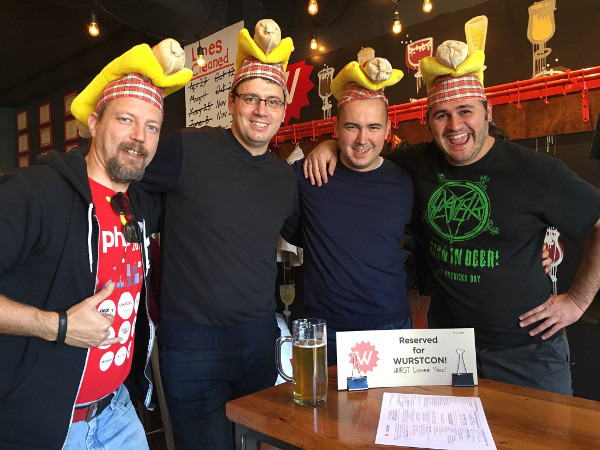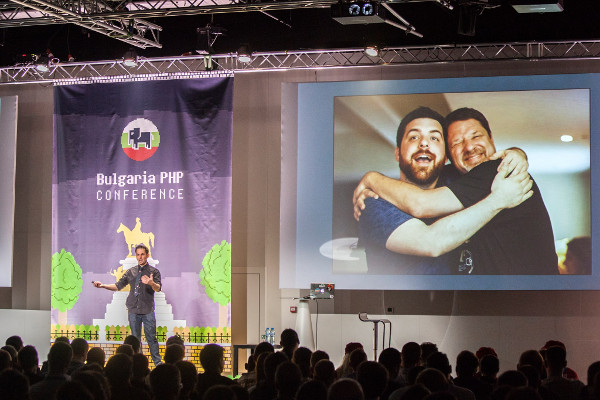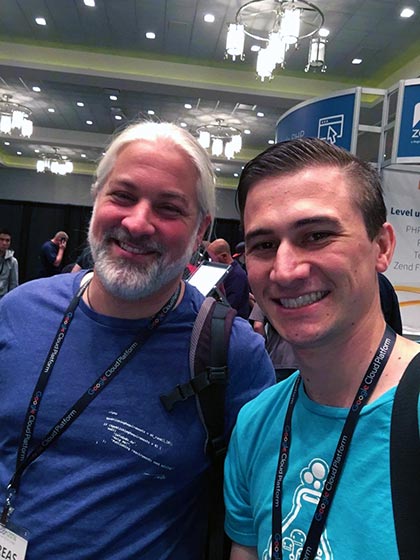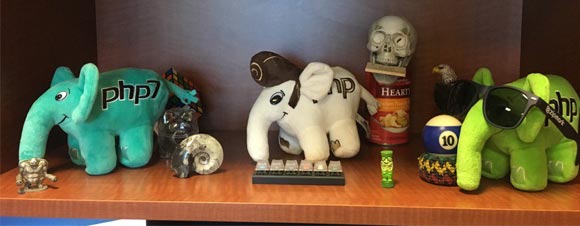As a developer advocate, I visit many technical conferences covering all kinds of communities including those within PHP and those beyond it. A few months ago, I was in the audience for a keynote at a big conference in London where the keynote speaker expressed the astonishment he had felt earlier in the week upon realising that a very successful ecommerce platform was made from *gasp* PHP.
This kind of contempt for PHP is something that I hear fairly often when I am out and about in the wider tech scene. While most web developers have touched PHP at some point (PHP runs > 80% of the web, it’s not exactly niche), it seems like most of them did so about ten years ago (or the code they worked on was created with the approach that was common in PHP about ten years ago, which comes to the same thing). As an industry we need to get better about not criticising things we know nothing about or haven’t checked in with the current versions of. Modern PHP is secure, performant and has all the features you’d expect from a modern language including OOP features and data types – it’s ideal for meeting the demands of modern web applications of all kinds. Getting criticised for things that might have been true a decade ago doesn’t reflect the true nature of PHP today, and I was more surprised than perhaps I should have been that a person keynoting a decent conference didn’t know better or at least check their facts.
This is a call to the PHP community to change the world. We must spread the word beyond the boundaries of our own communities. If each of us wrote a blog post or visited a user group to share information about the current state of the technology, we could make a difference. We must make it easier for others to learn about our tools and to use them in their own projects. Much has changed in our world and everyone should know that uninformed contempt is not appropriate.
I could end this article here, and I’m sure many people won’t read any further. For those still with me, it gets a bit more difficult from here…
PHP deserves this contempt.
Contempt begins at home and for PHP, it begins within our user groups, conferences, blog posts. Every time we poke fun at a framework or project that isn’t the one we use, whose features and community we haven’t been following recently: that contempt sets the tone for our whole community and for those looking in from outside. I have been around in the PHP community and at events for PHP-related stuff (Laravel, WordPress, Joomla, Drupal, CakePHP and the rest) for a decade and we cannot expect the respect of other communities until we respect ourselves. So let’s take the words I wrote above and revisit them in a way that will make a meaningful difference.
This is a call to the PHP community to change the world. We must spread the word within the boundaries of our own communities. If each of us read a blog post or visited a user group to learn information about the current state of the technology, we could make a difference. We must take the time to learn about other tools and to use them in our own projects. Much has changed across all the communities and we all know that uninformed contempt is not appropriate.
Think about how you refer to “other” technologies and communities. PHP is widely (and in my opinion wrongly) looked down on and there’s plenty we can do to represent our own community to the wider world, certainly. However let’s begin by having more respect, or at least informed disagreement, within and between our communities. For 2017 my challenge to you is to get out of your existing bubble, meet a community or read a post of a technology that you wouldn’t normally mix with, and reflect on whether things are necessarily as bad as (other) people claim.






